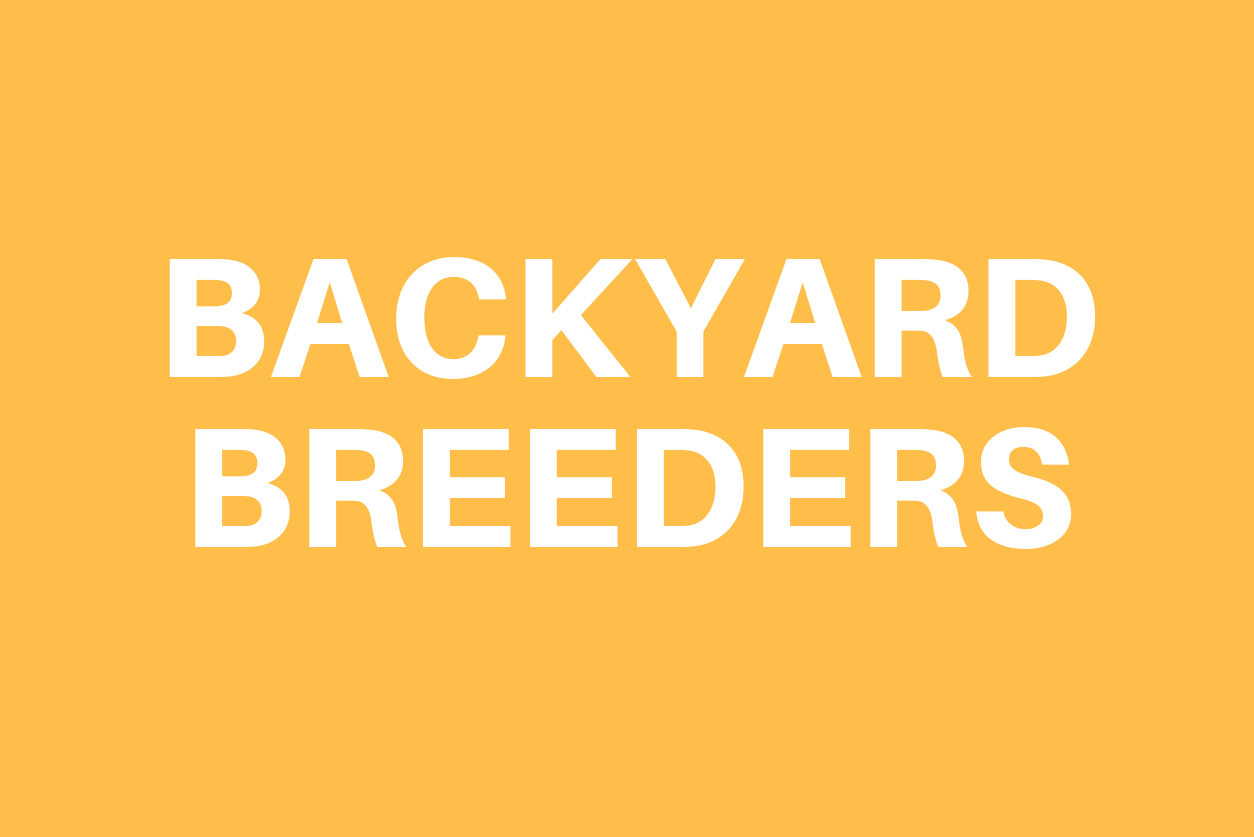Backyard breeders often claim to be responsible animal lovers, but tactics such as overcrowding, early weaning and inbreeding are detrimental to dog’s health. For this reason, it is important to carefully evaluate the environment in which your dog has been bred. As you search for the perfect dog to add to your family, be alert for these four signs that signal you could be dealing with a backyard breeder.
Searching for the perfect puppy is not an easy project. Many people believe that it entails nothing more than the thought that they’d like a new puppy combined with a quick internet search, and a new puppy moves in when they are free to pick it up. It’s not quite how the world of purchasing a dog from a breeder works for several reasons. One of the most important reasons is that a trusted breeder is the only option. The last thing you want when choosing a new puppy is to purchase one from a backyard dog breeder, or a breeder who isn’t doing his or her job on the up and up.
An irresponsible breeder can always come in many forms. It’s not just people who have their dogs running rampant around a dirty home without any knowledge of the breed. It’s the upscale couple with a beautiful home who doesn’t have a purebred dog or registration, let alone anything else that’s important to a responsible breeder. If you are in the market for a new dog, we want to make sure you’re looking for a responsible breeder. That means knowing that to look for in an irresponsible breeder.
How to Identify a Backyard Dog Breeder
When you decide to add a dog to your family, it is a long-term responsibility, but unfortunately, there are backyard breeders offering poor-quality animals. While all dogs deserve a home, you should avoid buying a pet from a backyard breeder because it encourages sellers to continue the practice. If you buy a puppy from a backyard breeder, then you are more likely to have a dog with physical problems or a difficult temperament. Backyard breeders are savvy about making the maximum of amount of money while supplying puppies that are bred in bad conditions.
Here are four common signs of backyard breeders.
1) They Don’t Ask You Questions
When a breeder loves animals, their puppies are like their babies. This means that they would never let one go home with someone without finding out more about their background. You should expect a reputable breeder to ask about your home, lifestyle and experience with puppies before they allow you to adopt.
2) They Discourage Visits
Quality breeders are proud of the environment in which they raise their puppies, and they know that socialization is important during those first few months of life.
In many cases, a breeder keeps only a few dogs in a private residence while other breeders may maintain an outbuilding for several dogs, but they are proud of the facility’s arrangement and cleanliness. During a tour of a breeding facility, you should get to see the mother dog and the stud dog or its photographs.
Reputable breeders, however, know that their breeding environment will raise red flags. For example, puppies that are isolated or left in unclean pens would be cause for concern.
3) They Let You Adopt Early
To ensure a puppy has the best health possible, an expert breeder keeps the animal with its mother for a minimum of eight weeks. This permits the puppy to obtain the vital nutrients found in the mother dog’s milk rather than cow’s milk or artificial formulas. The reason a backyard breeder wants to sell a puppy at a younger age is to breed the adult female as quickly as possible.
The ideal time for puppy adoption is when they are between 8 to 10 weeks of age. This is because puppies learn many skills from their mother and littermates even after they have been weaned. Reputable breeders also prefer to train their puppies, which means that they will not be ready for adoption when they are just a few weeks old.
4) They Are Overrun with Puppies
A backyard breeder has a goal of making a lot of money as quickly as possible and will always have puppies available. Responsible breeders breed a few females at a time because it is a complicated and time-consuming process rather than simply a moneymaking opportunity. In order to have healthy puppies, a knowledgeable breeder allows a female to have one or two litters in a lifetime rather than giving birth to numerous litters each year.
Backyard breeders see dollar signs every time a new puppy is born, and many use irresponsible breeding practices that sadly lead to puppies being sent to shelters. You should expect a reputable breeder to have a few puppies available and be taking wait lists for expected litters.
When you visit a reputable breeder, you will notice that they are absolutely in love with their chosen breed of dog. In fact, you may notice that they are screening you just as much as you are checking into their qualifications. Out of all of the differences between a backyard breeder and a reputable one, it is the breeder’s dedication and love for the dogs that will truly shine through in the health and happiness of your new pet.
What Constitutes a Backyard Dog Breeder?
- A breeder who allows pups to leave their mothers earlier than 8 weeks.
- You are not permitted to meet the parents of the pups.
- Visits to the home or location where the puppies are bred are not permitted/breeders ask that you meet in public places.
- The breeder does not ask you any questions about your home.
- The breeder does not require you spay or neuter your dog.
- Your breeder has more than one type of dog.
- Your breeder does not know much about the breed.
- The breeder is hesitant to answer questions you have/dodges and avoids questions by changing the subject.
- No contract.
- No registration or membership in local dog clubs.
If your breeder seems to portray one or more of the above mentioned issues, you might be dealing with a backyard dog breeder. This is dangerous for many reasons, including the health and safety of your potential new puppy.

